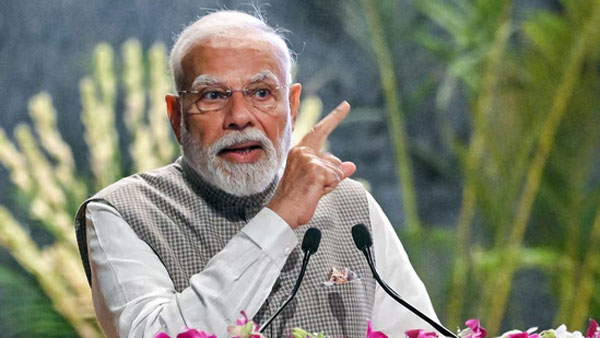Daijiworld Media Network - New Delhi
New Delhi, Nov 8: Prime Minister Narendra Modi on Saturday underscored the importance of “Ease of Justice” as a cornerstone for achieving “Ease of Doing Business” and “Ease of Living,” while inaugurating the National Conference on ‘Strengthening Legal Aid Delivery Mechanisms’ at the Supreme Court.
Highlighting the government’s efforts, PM Modi said that over the past three years, the legal aid system has helped resolve eight lakh cases through Lok Adalats and pre-litigation interventions. He stressed the need to make justice accessible, timely, and understandable, noting, “The language of justice should be such that it is easy for the public to comprehend, which will reduce litigation and strengthen social justice.”

Chief Justice of India B.R. Gavai described legal aid as “an act of nation building,” emphasizing its role in giving voice and dignity to the unheard, aligning with B.R. Ambedkar’s vision of social transformation.
Union Law and Justice Minister Arjun Ram Meghwal called on youth to view justice delivery as a citizen-centric service and highlighted the use of digital platforms under the Digital India initiative to broaden access. He noted the constitutional mandate under Article 39A, which guarantees free legal aid, and praised NALSA for its three-decade contribution in extending legal services to those in need.
During the event, the Prime Minister launched a Community Mediation Training Module prepared by NALSA. The two-day conference, organised by NALSA, will discuss strengthening legal services infrastructure, including legal aid counselling, panel lawyers, paralegal volunteers, permanent Lok Adalats, and financial management of legal services institutions.
The Legal Services Authorities Act, enacted in 1987 and enforced from November 9, 1995, established NALSA to ensure a uniform network of free and competent legal services for weaker sections. Each state has a State Legal Services Authority, headed by the Chief Justice of the respective High Court as Patron-in-Chief, with a senior High Court judge serving as Executive Chairman, responsible for implementing legal aid policies and conducting Lok Adalats.